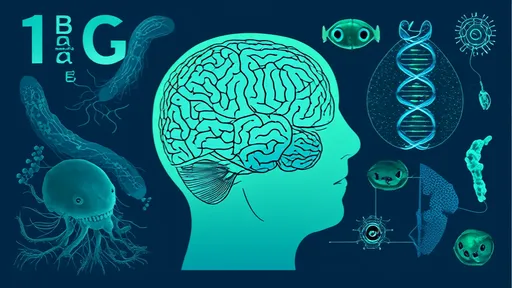The growing popularity of pet genetic testing has led many owners to explore the potential benefits of uncovering their furry companions' breed composition and inherited disease risks. Companies offering these services claim to provide valuable insights into a pet's health predispositions, but how reliable are these predictions when it comes to breed-specific disease warnings?
Genetic testing for dogs and cats has evolved rapidly in recent years, with several commercial laboratories now providing detailed reports on ancestry and health markers. These tests typically analyze hundreds of thousands of genetic markers, comparing them against databases of known breeds and documented disease-associated variants. The promise of early detection for conditions like hip dysplasia, heart disease, or certain cancers has made these tests particularly appealing to concerned pet owners.
The science behind these tests is both promising and imperfect. While researchers have identified clear genetic links to certain breed-associated conditions, the relationship between DNA and disease manifestation often involves complex interactions between multiple genes and environmental factors. A positive result for a genetic marker doesn't necessarily mean a pet will develop the condition, just as a negative result doesn't guarantee immunity.
Veterinary geneticists emphasize that these tests should be viewed as risk assessment tools rather than diagnostic instruments. The predictive value varies significantly depending on the specific condition being tested. For some well-researched disorders with simple inheritance patterns, like the MDR1 drug sensitivity in herding breeds, the tests can be highly accurate. For more complex polygenic conditions, the reliability decreases substantially.
Database limitations present another challenge to test accuracy. The quality of breed-specific risk predictions depends heavily on the reference populations used by testing companies. Some breeds are well-represented in genetic databases, while others have limited data available. This disparity can lead to varying levels of prediction accuracy across different breeds and mixed-breed animals.
The interpretation of results also requires careful consideration. Many testing companies provide risk assessments categorized as "increased risk," "normal risk," or "decreased risk," but these classifications often lack clear clinical context. Without proper veterinary guidance, owners might overestimate or underestimate the significance of their pet's genetic risk profile.
Ethical concerns have emerged alongside the growth of pet genetic testing. Some veterinarians worry that owners might make drastic decisions about breeding, insurance, or even euthanasia based on genetic risk predictions of uncertain reliability. The emotional impact of receiving concerning genetic results can be significant, especially when the actual clinical implications remain unclear.
Despite these limitations, genetic testing can serve as a valuable starting point for proactive pet care. When used appropriately, these tests can help veterinarians and owners develop tailored wellness plans that monitor for early signs of predicted conditions. Many veterinary professionals recommend combining genetic testing with regular health screenings and maintaining open communication about how to interpret and act on the results.
The field continues to evolve as researchers identify more genetic markers associated with diseases and improve their understanding of how these markers interact. Future advancements may lead to more accurate predictions and better integration of genetic information into routine veterinary care. For now, pet owners should approach genetic testing with realistic expectations and view the results as one piece of their pet's overall health picture.
As the market for pet genetic testing expands, consumers face an increasing array of testing options with varying levels of scientific validation. Reputable companies typically publish information about their testing methods, validation studies, and scientific advisory boards. Owners considering testing should research these factors and consult with their veterinarians before making decisions.
The relationship between breed and disease risk is undeniably complex. While genetics play a crucial role in health predispositions, factors like diet, exercise, environment, and preventive care all contribute significantly to a pet's wellbeing. Genetic testing offers fascinating insights but shouldn't replace regular veterinary care or common-sense observations about a pet's health and behavior.
Looking ahead, the integration of genetic information with other health data through electronic medical records and wearable technology may provide a more comprehensive approach to predicting and preventing disease in pets. This holistic view could help overcome some of the current limitations of standalone genetic testing while still leveraging its valuable contributions to preventive care.
For pet owners who choose genetic testing, maintaining perspective is essential. The results should inform rather than dictate care decisions, and any concerning findings should be discussed with a trusted veterinarian who understands both the potential and limitations of genetic risk assessment. As our understanding of pet genetics grows, so too will the practical applications of this information in promoting longer, healthier lives for our animal companions.

By /Jul 3, 2025

By /Jul 3, 2025

By /Jul 3, 2025

By /Jul 3, 2025

By /Jul 3, 2025

By /Jul 3, 2025

By /Jul 3, 2025

By /Jul 3, 2025

By /Jul 3, 2025

By /Jul 3, 2025

By /Jul 3, 2025

By /Jul 3, 2025

By /Jul 3, 2025

By /Jul 3, 2025

By /Jul 3, 2025

By /Jul 3, 2025

By /Jul 3, 2025

By /Jul 3, 2025

By /Jul 3, 2025

By /Jul 3, 2025